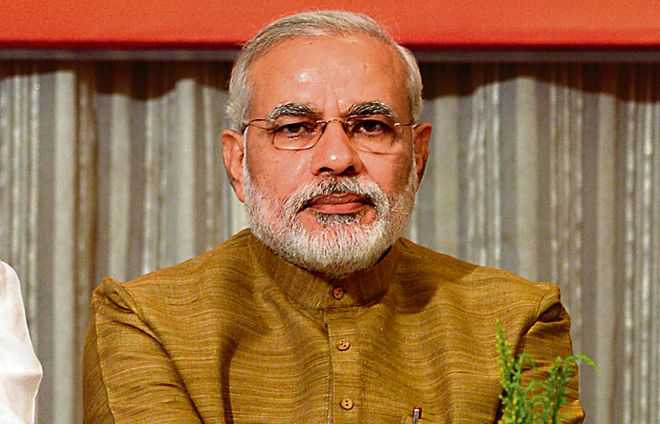Avijit Pathak
Professor of sociology, JNU
Even though this is the time for congratulating Narendra Modi for his spectacular success leading to the ongoing march of the BJP-led NDA, we should not forget to ask a set of critical questions relating to the emotive appeal of populism and the paradoxes of mass democracy. In fact, a true lover of democracy does not merely sing the praises of those who have won the elections; she or he ought to remind the ruling regime that democracy being a delicate art of negotiation with the plurality of voices can degenerate into some sort of authoritarianism, if the arrogance of ‘success’ makes one incapable of acknowledging and understanding all alternative voices — or even the voices that seem to have ‘failed’ in the elections. In fact, the real taste of democracy lies in its ability to resist the tyranny of majoritarianism, and respect those who differ from the establishment.
To begin with, it is important to distinguish the appeal of instinctive populism from the depths of truth. Yes, with the gigantic party machinery, massive social media campaign, and above all, the continual bombardment of the ‘Modi mantras’ by some loyal media houses, our Prime Minister has succeeded in branding himself as the ultimate saviour — a ‘meditative’ yogi at the Kedarnath temple, a macho nationalist capable of assuring India’s sovereignty and security, and a techno-savvy communicator filled with boundless energy. And herein, I would argue, lies the danger. When the masses begin to consume the leader as a hypnotising magician (the sight of young and old across the country wearing the ‘Modi masks’ and dancing is indeed frightening), democracy begins to lose its first principle — collective responsibility, activated agency and critical consciousness. The cult of narcissism threatens the spirit of democracy as people, to use social psychologist Erich Fromm’s prophetic phrase, begin to ‘escape from freedom’.
With the spectacle of populism, we tend to believe that what succeeds is necessarily true and desirable. Or, in the age of 'branding', whatever political commodity is sold, it is perfect. Yes, hyper-masculine nationalism, as the election results indicate, works; the projection of the ‘problematic’ Muslim community as the ‘enemy’ does wonders, and the notion of ‘Hindu pride’ makes one forget even everyday misery and economic hardships. With this inflated populism or what Amartya Sen once regarded as the ‘spell of magic’, we see the ultimate paradox of mass democracy. For instance, Pragya Singh Thakur is elected; and a dreamy idealist called Kanhaiya Kumar is defeated. While cricketers, Bollywood actors and soap opera celebrities without even the minimal socio-political and historical sensibilities win the elections, serious issues are trivialised.
As ‘success’ is always justified and seen to be safe, and the logic of numbers/ percentage of votes sanctifies it, we may feel tempted to make the ultimate mistake of believing that all ‘failed’ voices are necessarily wrong and undesirable. It is true that despite the valorisation of Nathuram Godse and condemnation of Gandhi, Pragya Singh Thakur won the election. Does it then mean that all that Gandhi lived for — from the Tolstoy Farm in South Africa to the Birla House in Delhi, and the principles he cherished — say, satyagraha, cross-religious dialogue, and swaraj as decentralised/empowered moral communities — is necessarily wrong? Or even if nothing — be it the controversial Rafale deal, the economic crisis caused by demonetisation and GST, the degeneration of Hinduism through mob lynching and cow vigilantism, and the fall of all the major institutions like the CBI, RBI, Election Commission and even the judiciary — could damage Modi’s fortune, does it then mean that these issues should not matter at all?
At a time when Modi’s success is magical, and he becomes all-pervading, it is important to remind ourselves time and again that true democracy is not the cult of narcissism, and even if the mass culture of political consumption standardises our choices, and refuses to recognise alternative voices — say, the Gandhian moment at Noakhali, Manto narrating the partition trauma and the psychology of gendered violence, Tagore seeing the danger of militant nationalism, or Theodor Adorno reflecting on the implications of being governed by the ‘authoritarian personality’, the future of mankind lies in the ability to distinguish truth from falsehood, love from violence, and sharing from egotism. It should not be ridiculed as a mere ‘elitist/liberal’ dream.
Democracy, we should not forget to assert, is not merely a ritualistic act of voting — and that too governed by a toxic culture filled with fake news, money/muscle power, gross emotions centred on religion and nation, and the 24x7 propaganda machinery. Democracy demands education: the education that awakens us, and makes us capable of overcoming the maya of narcissistic personalities and their dramaturgical performances. While I convey my best wishes to the new government, I should not forget to remind the ruling regime of the potential danger of majoritarianism or the tyranny of success, particularly at a time when in the absence of critical pedagogy in the manipulated public sphere we seem to be dictated by what is being regarded as the ‘Modi wave’.
Unlock Exclusive Insights with The Tribune Premium
Take your experience further with Premium access.
Thought-provoking Opinions, Expert Analysis, In-depth Insights and other Member Only Benefits
Already a Member? Sign In Now










